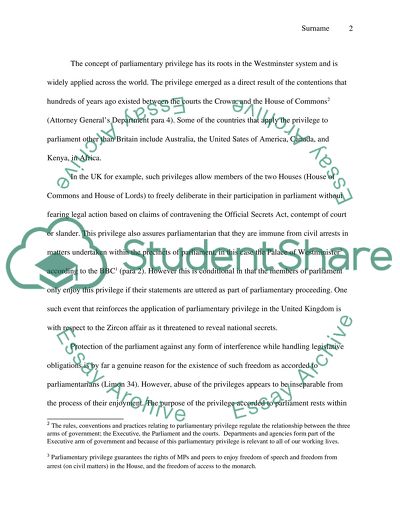Cite this document
(“The doctrine of Parliamentary privilege has no place in a modern Essay”, n.d.)
Retrieved from https://studentshare.org/environmental-studies/1412644-the-doctrine-of-parliamentary-privilege-has-no
Retrieved from https://studentshare.org/environmental-studies/1412644-the-doctrine-of-parliamentary-privilege-has-no
(The Doctrine of Parliamentary Privilege Has No Place in a Modern Essay)
https://studentshare.org/environmental-studies/1412644-the-doctrine-of-parliamentary-privilege-has-no.
https://studentshare.org/environmental-studies/1412644-the-doctrine-of-parliamentary-privilege-has-no.
“The Doctrine of Parliamentary Privilege Has No Place in a Modern Essay”, n.d. https://studentshare.org/environmental-studies/1412644-the-doctrine-of-parliamentary-privilege-has-no.


